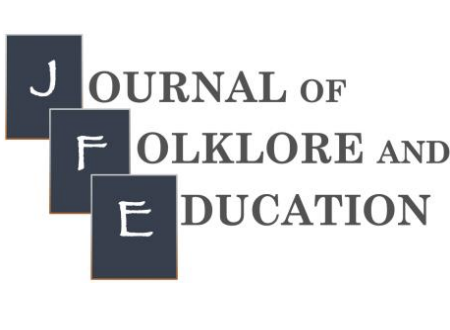JFE Publishes Latest Volume and Announces 2026 Theme

Local Learning: The National Network for Folk Arts in Education announced the release of their latest Journal of Folklore and Education (JFE) volume: Cultural Frameworks for Transformative Documenting and Learning, with guest editors Naomi Sturm-Wijesinghe and Mauricio Bayona of Los Herederos. From teaching with AI to museum curation animated with augmented reality, and from the analog zine to a digital documentation student project, this open access, peer-reviewed issue offers educators case studies, activities, and creative entry points to engage the art of documentation in our learning spaces.
“Storytelling is pedagogy. To inherit culture in the digital age is to honor tradition while embracing innovation, to archive the past while imagining futures, and to make learning a process of shared transformation.” — Los Herederos
2026 JFE Call for Submissions
The 2026 theme for JFE is “Teaching with Monsters: From Whimsy to Shadow,” with guest editors Camille Maria Acosta and Sheila Bock.
The 2026 Journal of Folklore and Education seeks submissions that recognize monsters, cryptids, and the legendary beings of our family stories and community narratives as powerful communicative tools in the classroom and beyond. The exploration of monstrosity can serve as a medium that helps us to talk about topics that can be difficult to address in other ways. Bringing together the perspectives and experiences of educators who take monsters seriously as “meaning-making machines” (Judith Halberstam, Skin Shows: Gothic Horror and the Technology of Monsters, Duke University Press, 1995), the aim of this special issue is to share insights into how individuals and communities use legendary creatures as opportunities for playfulness and creativity, as well as to grapple with cultural fears and anxieties surrounding, among other subjects, gender, sexuality, race, the environment, technology, and the body. The editors also seek to shed light on monstrosity as a mode of empowerment, particularly for marginalized groups. Considering the role that monsters play in informal modes of education within a diverse range of communities, this issue will provide models for thinking about how educators both inside and outside the classroom might engage with these expressions of folklife in their pedagogy.
Publication is scheduled for Fall 2026, and full articles are due April 1, 2026 to JFE’s submission portal.
We sometimes make mistakes, and we are happy to correct any errors that you may come across on our site. If you find an error, please let us know using the “submit a correction” link.